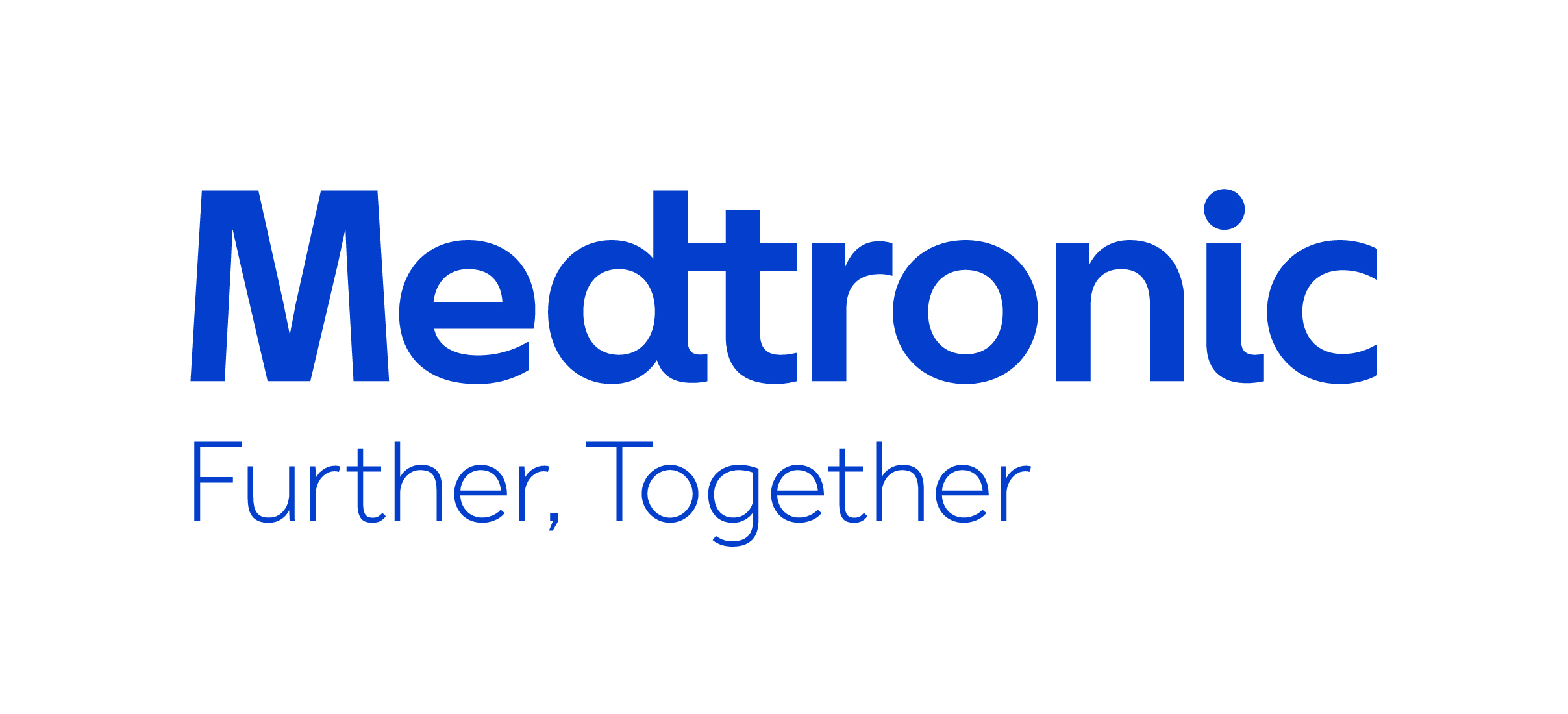16 June 2020
Medtronic plc (NYSE:MDT), the global leader in medical technology, today announced the first-ever results from the ABRE clinical study assessing the safety and effectiveness of the investigational Abre™ venous self-expanding stent system in subjects with iliofemoral venous outflow obstruction. The study met the primary safety and effectiveness endpoints, and the data were presented today virtually via the 2020 Charing Cross Symposium.
“Deep venous lesions are uniquely challenging and require a stent that is strong, flexible, and durable, while also being able to maintain blood flow,” said Stephen Black, M.D., consultant vascular surgeon, Guy’s and St. Thomas’ Hospital, London and European principal investigator for the ABRE Study. “It is encouraging that the study was able to meet its primary endpoints and demonstrated strong results with secondary endpoints. This is especially remarkable in this challenging study population with stents extending below the inguinal ligament in nearly half of enrolled subjects.”
The ABRE Study is a prospective, interventional, single-arm, multi-center, worldwide study, which included 200 subjects with symptomatic iliofemoral venous outflow obstruction from 24 sites throughout the U.S. and Europe. The primary effectiveness endpoint evaluated primary patency at 12 months, and the primary safety endpoint evaluated the incidence of composite Major Adverse Events (MAE) within 30 days following stenting of an obstruction in the iliofemoral venous segment. The study enrolled subjects across the spectrum of deep venous disease, including those with post-thrombotic syndrome (PTS), non-thrombotic iliac vein lesions (NIVL), and those who presented with an acute deep vein thrombosis (aDVT).
The study met its primary safety endpoint with a 2.0% (4/200) rate of major adverse events (MAEs) within 30 days.1 The study also met its 12-month primary effectiveness endpoint with an overall primary patency rate of 88.0% (162/184).2 Furthermore, the data demonstrated a freedom from clinically driven target lesion revascularization (TLR) rate of 92.4% (170/184) through 390 days. Notable secondary endpoint results from the ABRE Study include:
- 100.0% device success achieved during the index procedure3
- No stent fractures and no delayed stent migration observed within 12 months
- Sustained and statistically significant improvements in quality of life measures4 and venous functional assessment scores5 at 12 months compared to baseline
Venous outflow obstruction, or deep venous obstruction, occurs when veins in the deep venous system become compressed and restrict blood flow. This can result in pain and discomfort, while also limiting a patient’s mobility, and impairing quality of life. Medtronic estimates that approximately 24 million people worldwide are affected by deep venous obstruction, yet only <1% of this population is actually treated.6
“Our goal with the ABRE study is to generate evidence supporting the performance of the Abre stent in patients with broad indications for iliofemoral venous obstruction. This includes patients with an initial presentation of acute deep vein thrombosis, which is a unique differentiator of this study,” said Simona Zannetti, M.D., vice president, Clinical Research, Medical Affairs, and Education, Medtronic Aortic, Peripheral, and Venous. “We are very encouraged by the one-year results and look forward to sharing the data broadly as we seek to expand commercialization globally.”
In the U.S., Abre is an investigational device and not yet approved for commercial use. Abre received CE (Conformité Européene) Mark approval in April of 2017 and is intended for use in the iliofemoral veins for treatment of symptomatic venous outflow obstruction.
In collaboration with leading clinicians, researchers, and scientists worldwide, Medtronic offers the broadest range of innovative medical technology for the interventional and surgical treatment of cardiovascular disease and cardiac arrhythmias. The company strives to offer products and services that deliver clinical and economic value to healthcare consumers and providers around the world.
Read the complete media release.




